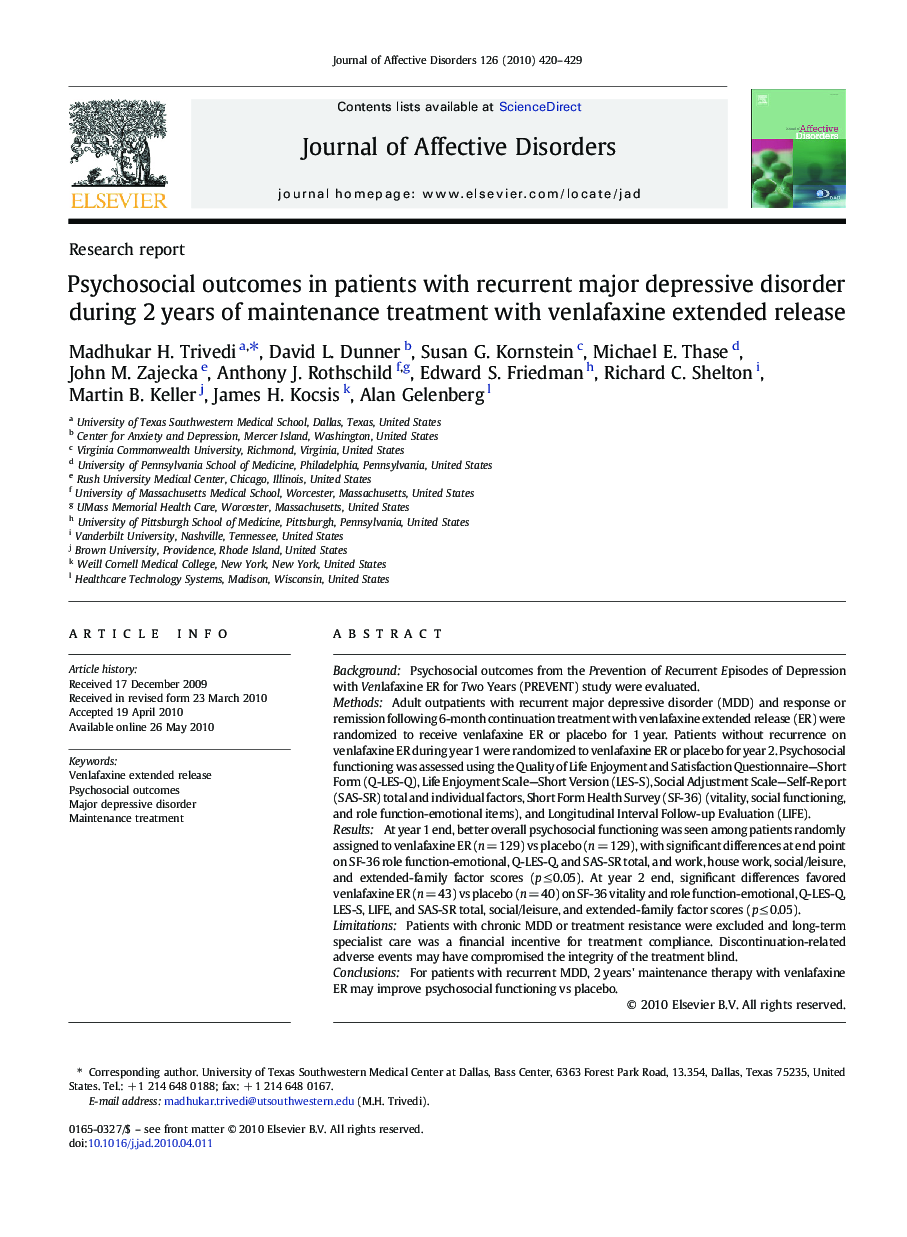| Article ID | Journal | Published Year | Pages | File Type |
|---|---|---|---|---|
| 4186679 | Journal of Affective Disorders | 2010 | 10 Pages |
BackgroundPsychosocial outcomes from the Prevention of Recurrent Episodes of Depression with Venlafaxine ER for Two Years (PREVENT) study were evaluated.MethodsAdult outpatients with recurrent major depressive disorder (MDD) and response or remission following 6-month continuation treatment with venlafaxine extended release (ER) were randomized to receive venlafaxine ER or placebo for 1 year. Patients without recurrence on venlafaxine ER during year 1 were randomized to venlafaxine ER or placebo for year 2. Psychosocial functioning was assessed using the Quality of Life Enjoyment and Satisfaction Questionnaire—Short Form (Q-LES-Q), Life Enjoyment Scale—Short Version (LES-S), Social Adjustment Scale—Self-Report (SAS-SR) total and individual factors, Short Form Health Survey (SF-36) (vitality, social functioning, and role function-emotional items), and Longitudinal Interval Follow-up Evaluation (LIFE).ResultsAt year 1 end, better overall psychosocial functioning was seen among patients randomly assigned to venlafaxine ER (n = 129) vs placebo (n = 129), with significant differences at end point on SF-36 role function-emotional, Q-LES-Q, and SAS-SR total, and work, house work, social/leisure, and extended-family factor scores (p ≤ 0.05). At year 2 end, significant differences favored venlafaxine ER (n = 43) vs placebo (n = 40) on SF-36 vitality and role function-emotional, Q-LES-Q, LES-S, LIFE, and SAS-SR total, social/leisure, and extended-family factor scores (p ≤ 0.05).LimitationsPatients with chronic MDD or treatment resistance were excluded and long-term specialist care was a financial incentive for treatment compliance. Discontinuation-related adverse events may have compromised the integrity of the treatment blind.ConclusionsFor patients with recurrent MDD, 2 years' maintenance therapy with venlafaxine ER may improve psychosocial functioning vs placebo.
